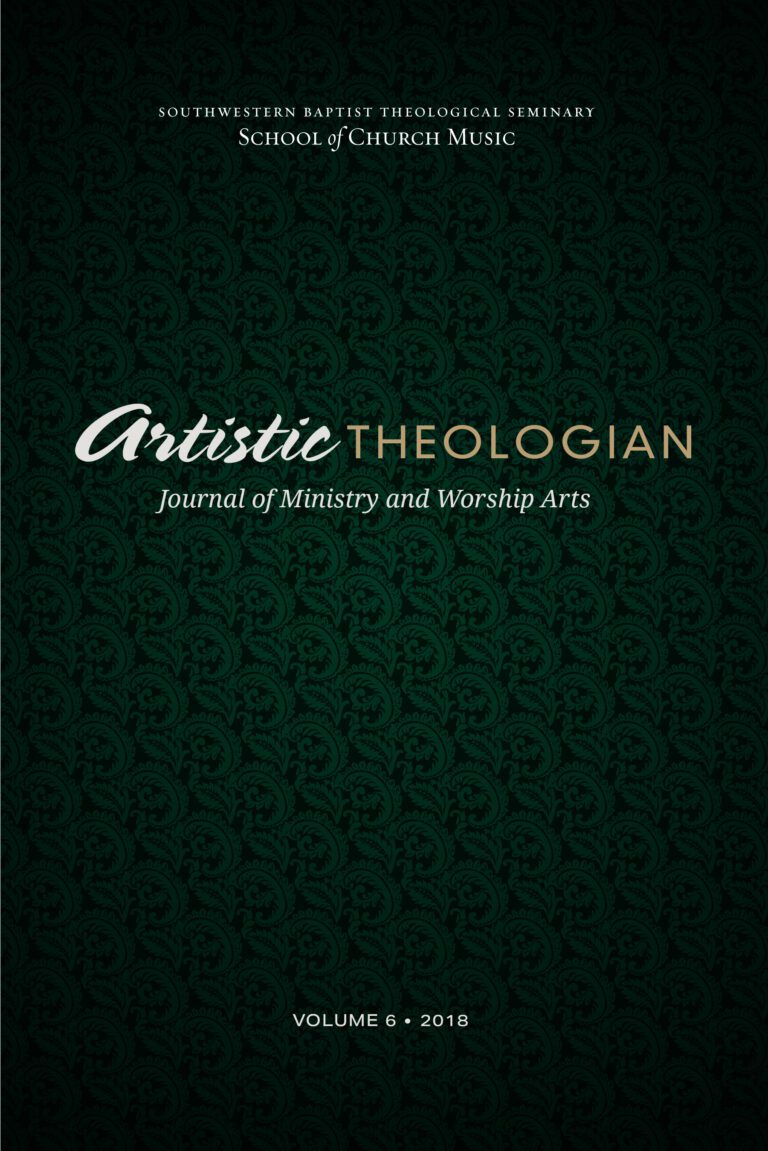
When We Come Together
Artistic Theologian
Volume 6, Summer 2018
Editor-in-Chief: Scott Aniol
For the Glory of God: Rediscovering a Biblical Theology of Worship, by Daniel I. Block. Grand Rapids, MI: Baker Academic, 2014. 360 pp. $36.99.
From one of the foremost American Old Testament scholars, Daniel I. Block, comes For the Glory of God: Rediscovering a Biblical Theology of Worship. After decades of writing commentaries on individual books of the Bible, Block presents readers with a holistic biblical theology of worship. Through this study he seeks “to find in it the principles and patterns of worship that should drive us today” (6). This is accomplished by answering the larger questions of “What do the Scriptures have in mind when they speak of worship? Who is the object of true worship? And whose worship is acceptable to God” (xiv)? Not only does Block answer these questions, but he also explores the topics of worship in personal devotion and family life, the ordinances, the ministry of the Word, prayer, music, offering sacrifices, sacred space for worship, and the role of worship leaders. Block presents his material topically rather than serially, but within each topic he examines and traces chronological patterns of worship from the Old Testament to New Testament.
Block accomplishes his task by providing the reader with a wealth of information. He answers the first question “what do the Scriptures have in mind when they speak of worship?” by first differentiating between Old and New Testament worship forms. He concludes that in the Old Testament “worship was primarily a matter of external actions rather than inward spiritual events” (5). But one element that carries into New Testament worship is a proper disposition: “First and New Testament perspectives on a proper disposition as a precondition for acceptable worship are indistinguishable” (11). Block concludes this discussion by referencing the command that carries from Old to New Testament in which people are to love God with all their hearts and minds.[1]
Block answers the second major question of “who is the object of worship?” by providing an overview of idolatry and then showing what sets Yahweh apart from other gods and idols. Block provides for the reader an overview of the names of Yahweh, His covenantal nature, and the importance of Christ, who makes all the difference in worship. He closes this chapter with a statement that summarizes why Christ is worthy of worship: “(1) He was slain—the historical fact; (2) with his death he purchased for God a people from every tribe and nation—the missiological fact and (3) through him the redeemed are made to be a kingdom and priests to God, and they shall reign on earth—the ecclesiological and eschatological fact” (53).
Finally, Block answers his third major question, “whose worship is acceptable to God?” Before he answers this question, he first differentiates between true worship in a sinless world and true worship in a post-Fall world, the latter serving as his primary focus. According to Block,
Obviously God does not accept just anybody or everybody’s worship. When peoples’ hearts are pure and their lives exhibit righteousness, God responds favorably to their cultic worship. But God is not obligated to accept the worship of those whose hearts are hardened toward him and who live contrary to his will, even if the forms of their worship are correct. God looks upon the offering through the lens of the worshiper’s heart and character rather than seeing the worshiper through the lens of the offering. (61)
Block surmises this statement through an analysis of Cain and Abel’s offerings to the Lord in Genesis chapter four. Whose worship is acceptable is first and foremost a heart issue. He continues to prove this idea through an overview of Old Testament worship, through worship in the modern day, and through Christ.
Block accomplishes everything that he intended to do according to his initial questions within the preface, but this book shines further by providing information on the topics of worship in personal devotion and family life, the ordinances, the ministry of the Word, prayer, music, offering sacrifices, sacred space for worship, and the role of worship leaders. These sections continue to complement his initial three questions.
Block provides excellent charts that only add to the resources provided for the reader throughout. Another positive attribute of this book is that Block readily admits where he digresses because of his denominational presuppositions, as he does with the ordinance of baptism on pages 154–55. One final commendable attribute is his extensive chapter on music as worship. He does not simply present his view; but as he does in the rest of the book, he walks the reader from Old Testament to modern times in worship addressing numerous topics many would consider relevant today.
For the Glory of God: Rediscovering a Biblical Theology of Worship provides readers with information that I highly recommend to anyone, especially to those who have formal theological training. This book would be excellent as a textbook in a worship history course or just for a layperson to learn more about worship.
Matthew Phenix
Southwestern Baptist Theological Seminary
[1] See Deut 6:5, Matt 22:37, Mark 12:30, and Luke 10:27.





